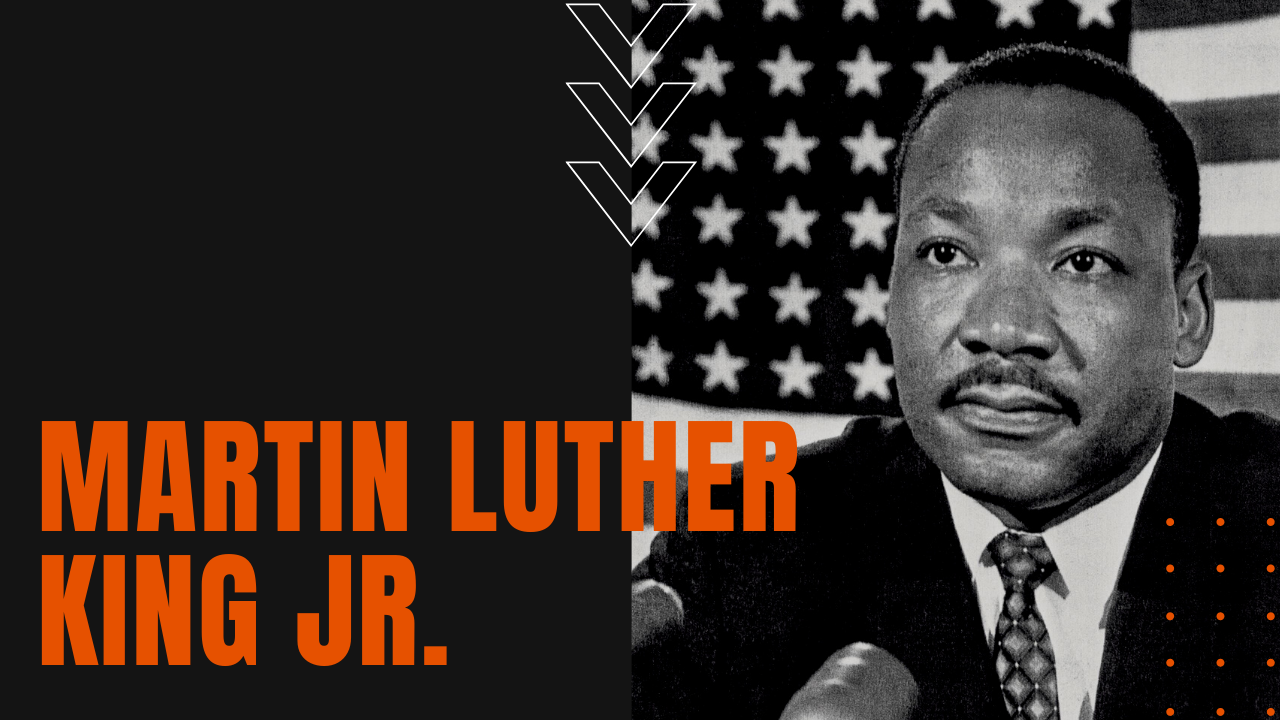Martin Luther King Jr.

Born into a family of distinguished pastors at the Ebenezer Baptist Church in Atlanta, Martin Luther King, Jr. attended segregated public schools in Georgia, before receiving his B.A. from predominantly Black Morehouse College.
He then went on to attend the predominantly White Crozer Theological Seminary in Pennsylvania, where he was elected class president before winning a fellowship that enabled him to pursue his doctorate at Boston University. In Boston he met and married Coretta Scott, raising two sons and two daughters. As Martin Luther pursued his preaching career at Ebenezer Baptist and the Dexter Avenue Baptist Church in Montgomery, Alabama.
By age 35, Martin Luther had already won the Nobel Prize for Peace. Martin Luther soon became one of the leading figures in the civil rights movement of the 1950s and 60s, spearheading the 328-day Montgomery Bus Boycott after Rosa Parks refused to give up her seat to a white bus passenger on December 1st, 1955. For his very public activism in Montgomery, Martin Luther was arrested—over 20 times during his activist career—before his home was bombed by white haters, and despite endless threats to his life, Martin Luther would propel the civil rights movement with his gifts behind the pulpit.
Civil Rights Leadership
As head of the Southern Christian Leadership Council, Martin Luther would go on to lead numerous civil rights campaigns and marches, including the March on Washington, the Birmingham Campaign, as well as violence-riddled marches on Selma and Montgomery. He also led the Chicago Open Housing Movement, the Memphis Sanitation Workers Strike and the Poor People’s Campaign, authoring five books in-between traveling over six million miles from 1957 to 1968, delivering no less than 2,500 speeches in support of equal rights.
Many historians believe that Martin Luther’s open criticism of America’s participation in the Vietnam War split his message as a civil rights leader, leading to the rise of a different sort of black activists such as Malcolm X, who opposed King’s adherence to Gandhi-style nonviolent protest techniques.
When Did Martin Luther King, Jr Die?
On April 4th, 1968, after delivering one of the most powerful speeches of his life to the Memphis sanitation workers the night before, Martin Luther’s life was unjustly taken at the Lorraine hotel in Memphis, as he and others were leaving for dinner, felled before his time by assassin James Earl Ray.
